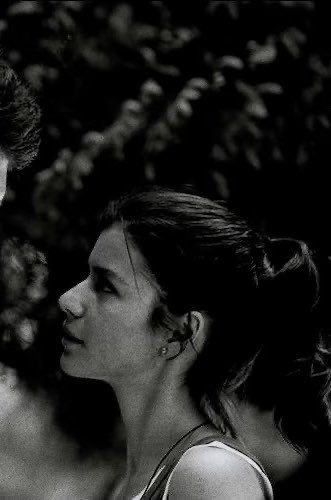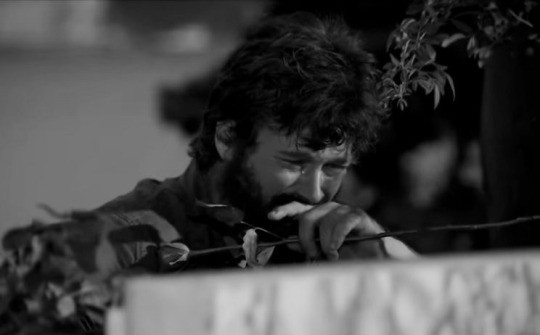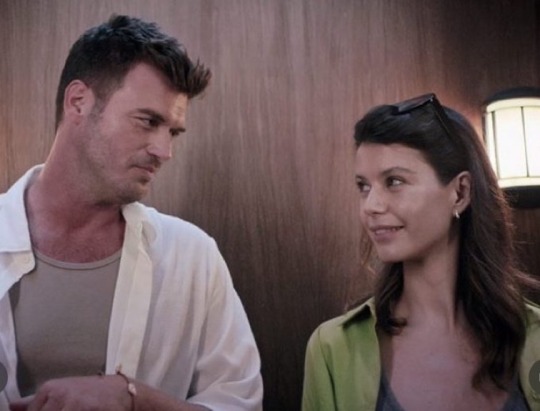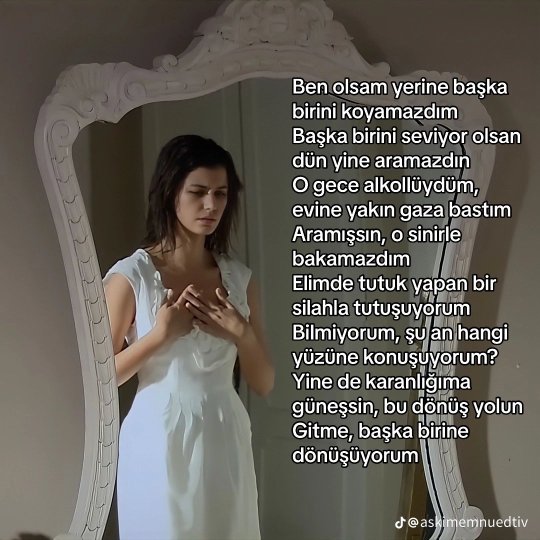#behlül
Explore tagged Tumblr posts
Text
Heathcliff 🤝 Petyr Baelish 🤝 Firdevs 🤝 Rüstem & Fatma Sultan
Manipulating younger people’s love lives
Heathcliff:


***

Petyr “Littlefinger” Baelish:


Firdevs:
“I think men should marry chiefly so they do not live like you. Finally, a clock chimes in a man’s life that reminds them that it’s time they stop chasing fleeting romances and seek earthly happiness in the hand of a young girl.’
‘A poetic sentiment! Do you know? Sentences like that have a strange power over me. There is a second verse in your sentence: young girl!.. Young girls are, to my mind, creatures unknown, in need of being experienced. But I will leave this poem to be experienced after I have tired of the others.’
Firdevs Hanım seemed bent on not giving in. ‘Yes, but young girls can only be experienced once, and the desires that are to be left in their pure breasts should not be too rotten, too depleted.’
Behlül replied with a smile. ‘If you continue with these sentences, I will have to admit defeat. But who is this young girl who you find worthy of the happiness of owning me?’
As Behlül posed this question, the glass door of the hall had been opened, and Beşir had entered; he was probably going to say something to Firdevs Hanım. They continued talking, without paying him any heed.
‘Don’t you understand? Do you still not understand?’ Firdevs Hanım was saying. ‘But Nihal, only Nihal!.. I formed this notion when I came here and found her so utterly altered, so grown up in the last three months.’
Behlül had stood up with a long, ‘ooooh!’ He laughed as he asked, ‘when did you begin to hatch such wonders?.. Nihal… But you must seek a teacher for her, not a husband. Besides, look, now I think of it, it’s impossible to be Nihal’s husband. There is a great obstacle: I am in Nihal’s debt. See, now you do not understand. I have calculated that I am four lira and several kuruş in debt to her, and if you take interest into account…’
Firdevs Hanım was offended. ‘But you’re always jesting. Will you leave Nihal, that jewel, to someone else?’
Behlül looked at Beşir as he replied. ‘But you’re wrong. Nihal isn’t a jewel, she’s a flame. There isn’t a day we don’t quarrel… Isn’t that so, Beşir?’
Beşir was standing there motionless with unseeing eyes, not breathing. He did not seem to have heard Behlül address him.
Then Firdevs Hanım asked, ‘what do you want, Beşir?’
Beşir woke from his abstraction, and after a brief hesitation to recall what he had to say, replied, ‘beyefendi is asking, with your permission, if they can put a little table here, so you can eat together this evening…’
Firdevs Hanım agreed instantly, and after Beşir had descended, she turned to Behlül, who was still smiling at her. ‘Laugh all you will,’ she said, ‘you will take Nihal, since I have decided it will be so…’”
(Chapter 17)
“After leaving Behlül’s room, Nihal had gone upstairs, and found her father sitting with Firdevs Hanım. Firdevs Hanım, beckoning her, had said, ‘Nihal! Look what your father is saying!’ Nihal, curious, had drawn closer. Then Adnan Bey, laughing as if from the effects of a joke, had said that since Nihal was now to become a bride, there was now no excuse not to buy her that set of emeralds that had so taken her fancy.
Firdevs Hanım lost no opportunity of accustoming Adnan Bey, a little more every day, to the idea of this marriage. Today, it seemed as if something else had been decided between them. Before Nihal could reply, he said:
‘Nihal! We decided something else. We’re sending you to the island in a few days, to your aunt. To begin with, a change of air is necessary to your health, and then it seems your aunt has been complaining of being neglected…’”
(Chapter 18)
Rüstem:



Fatma Sultan:






@julyzaa @schrodingerdickstatussnape @minetteskvareninova @rhaelynn @mc-critical @tell-them-the-north-remembers @struttingstreets @la-pheacienne @ohhmichelettoohh
#wuthering heights#heathcliff#asoiaf#petyr baelish#aşk ı memnu#aşk-ı memnu#firdevs#magnificent century#muhteşem yüzyıl#rüstem pasha#rüstem paşa#fatma sultan#cathy linton#sansa stark#nihal#behlül#mihrimah sultan
24 notes
·
View notes
Text



Kıvanç Tatlıtuğ | New 💥
#kıvançtatlıtuğ#kıvanç tatlıtuğ#kivanc tatlitug#turkish actor#turkish series#turkish actress#actor#tv series#tvedit#turkishdreams#turkish man#turkishedit#tvgifs#turkey#my gif edit#usergif#gif edit#icon gif#kuzey tekinoglu#kuzey güney#kuzey tekinoğlu#cesur ve guzel#cesur ve güzel#aile#aslan soykan#askı memnu#behlül#new gif#new#edittv
24 notes
·
View notes
Text



Beren Saat&Kıvanç Tatlıtuğ as Serin&Mehmet in Last Call for İstanbul
#beren saat#kıvanç tatlıtuğ#istanbuliçinsonçağrı#lastcallforistanbul#aşkı memnu#bihter ziyagil#bihteryöreoğlu#forbidden love#bihbeh#bihter#behlül#aski memnu
37 notes
·
View notes
Text

#Bihter (2023)#Bihter 2023#Bihter#farah zeynep abdullah#boran kuzum#Behlül#Bihter ve Behlül#Bihter and Behlül
13 notes
·
View notes
Text
Aşk-ı Memnu: Attempting a Pre-lapsarian Reading
@faintingheroine I’m so so glad that you introduced me to this book, and a lot of this analysis will be heavily influenced by you and your thoughts. We discussed pre-lapsarian readings quite a lot, but I wanted to see if I could give it a proper treatment. The translation I’m using can be found here.
The main concept of the argument hinges on the names of Adnan Bey and Firdevs Hanım: Adnan’s name meaning ‘the one who achieves immortality in heaven/Eden’ and Firdevs’ name meaning ‘Heaven’/’Paradise’.
Aşk-ı Memnu means ‘Forbidden Love’, and it’s possible to view love itself as the forbidden fruit of this Fall, or rather, collection of Falls. In Adam and Eve’s original tale, Adam’s love for Eve is sometimes viewed as the cause of his Fall, and he is blamed for being seduced, transferring agency to him rather than Eve.
To take the story first from Bihter’s perspective, Adnan is her Eden. She cannot create herself as an entire woman until she has escaped from her mother, but once she is in Eden, she is dissatisfied; ‘she want[s] such a love that it would leave an intoxicating faintness in her soul’. She feels the knowledge of love calling to her and Falls first not to Behlül (the one who laughs, but also not dissimilar in sound to Belial, another name for Satan— I cannot discover whether this tracks into Islam and the Turkish language, so I may be wrong to suggest this one), but to herself, when she makes that discovery of what love is:
Suddenly, in this semi-dark room, amid the slumbering silence of this house, as the tinted glass of the lamp above her head rained colourful shadows and seemed to enliven the furniture around her with an unfelt breeze, she shivered to find herself so naked, and feared the loneliness. No, this was such an emotion that it was closer to shame than to fear. She was ashamed, as if she had done a great wrong, ashamed that she had sinned unthinkingly against her virtue. She had fallen into the arms of an unknown lover who entered the privacy of her chamber secretly, and her first sin of passion had been committed in an irresistible nervous trembling. (Chapter 8)
Note how the room is ‘semi’ dark, how Bihter has been standing in the window, occupying liminal spaces that could represent her in-between state, the precipice of the Fall.
Bihter’s second Fall is more traditional. Behlül becomes a tempter, as he has tried and failed with Peyker, but unlike Satan, he lacks magnitude. He is opportunistic, casual. His Falls are more like flights of fancy and his temptations are boyish, almost innocent. They are in the room that serves as an entryway to his bedroom, neither completely sequestered in his private quarters, nor in the general space of the house and much of the action between them takes place in this in-between space. ‘[T]he red eyes of the stove were lowering their eyelashes’; ‘white snowflakes were falling’ (emphasis mine); Bihter is Falling.
The second Fallen figure I would like to consider is Behlül himself. Behlül is not someone who Falls once or twice, but someone who seems doomed to Fall over and over again. He seems to Fall for almost every woman he meets, but his two particular Falls are for Bihter and Nihal.
In a second Behlül had gone so far that it was now no longer possible to turn back (Chapter 10)
At last, the little love stories of his life had been closed, now a long love story, with all its passions, desires, fevers, happinesses, had begun. He was finding all the old memories petty, lowly. They had become like rough drafts that had been scribbled over as a child, which one, embarrassed, wanted to tear out and throw away, to burn to ashes. Now he was going to write a perfect chapter of his love life, and after this chapter, he could end his love story. (Chapter 11)
He is insistent on the uniqueness of this, the irreversible romance of each Falling, yet his feelings for Nihal are almost identical:
Before this tableau of the old dream, he was thinking of his own life, of the life whose final page would perhaps be closed tonight, with one word from Nihal, of the life that would resemble just this view, turned into an abandoned ruin with its faded lines, its washed-out planes. Already that life seemed to have grown distant through an interval of long years; all those faces, even Bihter, all those memories belonging to yesterday, had been buried in the ruins of that old dream, far away, beyond such a wide sea. Now beside him, a fresh flower of hope was promising him the horizon of a new life with its shy glances. (Chapter 19)
He does not learn; after the close of the novel, it seems he may well have disappeared from Adnan Bey’s Eden to Fall again. He is a man; he may do so.
Last of the main three, but certainly not least, Nihal’s Fall is more complex and more gradual, less borne of single instants than Bihter and Behlül’s. The entire narrative encompasses her Fall, a Fall of a thousand moments. If Adnan Bey is Eden, then so too is Nihal’s childhood and his fatherly state. The more Nihal learns of love— at the wedding (noticeably we follow Nihal and the bride in that strange part of the day where the wedding has begun but the marriage has not, that precipice of Fall), by observing Bihter, by wearing sheets, by releasing Bülent, whose removal from the room is an acknowledgement of their adult genders— the more she edges towards her Fall. Even when she consents to marry Behlül, the Fall is not complete. It is not complete until she literally falls down those liminal stairs and lands at the bottom with Behlül and Bihter, the Fallen. She knows what love is; she knows what love can do. Adnan Bey carries her back upstairs, reclaims her for Eden, but this cannot last. The novel closes uneasily, ‘ a fear [...] passing through her mind’ as Nihal knows that Adnan Bey cannot live forever and she must one day leave Eden. She seems almost to resolve on death to escape passage into the next stage of life; a key parallel to Bihter.
I turn now to Firdevs. Is she not the epitome of the Fallen Woman? She Fell before the tale began, she seems determined to keep Falling until it kills her. Yet she is Paradise. What Paradise can this woman represent?
If my understanding is correct, Halit Ziya was familiar with Western traditions; likely familiar with Felix Culpa or the happy mistake. This is a view which suggests that the Fall is not actually a bad thing, but rather the only way humans could truly understand good and evil in the way God does and fulfil their destinies.
Firdevs has lived with her mistakes and she suffers for them, a kind of purgatory or barzakh. Perhaps she will attain Paradise because she is willing to live with herself in a way that Bihter and Nihal are not. It’s interesting that Behlül is the one most willing to sympathise with Firdevs; he is the one who leaves Eden and lives, the one who seems most likely to follow her path in life.
Bihter and Nihal will not wait for the Paradise of Heaven; they will not wait to become Firdevs. The Fall is too much for them and the loss of Eden too terrifying.
Beşir’s position in this reading is particularly interesting. He is the one who brings revelation, ‘the one who brings good news’. Ostensibly, the news is hardly good, but it is truth. He becomes almost a stand in for the God of Adnan Bey’s Eden. He even potentially redeems Nihal from her Fall, a Christ figure, sacrificed for the sins of the others.
Ultimately, it is not simply love that is forbidden, but knowledge of what it is to love. Nihal struggles against this knowledge and in the tragic conclusion, finally Falls. She can pretend to be firmly in Eden at the close of the novel but her knowledge is inescapable. She forbids herself from romantic love, tries to evade it, but the Fall must happen, and she cannot stall it forever.
#Aşk-ı Memnu#nihal#bihter#behlül#firdevs#adnan bey#halit ziya uşaklıgil#pre-lapsarian reading#or mid-lapsarian rather
33 notes
·
View notes
Text


Seni çok özledim ama ben öldüm



8 notes
·
View notes
Text
Korkakların ismi dün Behlül'dü, bugün Ali Cabbar. Yarın da sen olursun merak etme
😘💅
#semaamagokyuzuolmayan#semamagokyuzuolmayan#semaamagökyüzüolmayan#sema#ali cabbar#emir can iğrek#emir can i─ƒrek#pop music#behlül#music
8 notes
·
View notes
Text
Keşke💔
#aşkı memnu#aşk şiiri#gerçek aşk#aşk ile#sonsuz aşk#platonik aşk#gece#sevgi#şiir#keşkeee#keşke#bihter ziyagil#bihter#behlül#hangimiz sevmedik
5 notes
·
View notes
Text


1 note
·
View note
Text
Bihter and Behlül
Pros: They are both in their twenties, they are presumably sexually compatible, they are attracted to each other. They at least believe that they love each other for a time. They are not too discordant in their personalities and values in daily life, they got along fine before the affair. The sex was presumably good.
Cons: Behlül doesn’t value Bihter as a person and comes to be disgusted with her for her earnestness and “easiness”, they fight during the affair, there is a general lack of genuine love, he just abandons her to her fate at the end and makes only her deal with the consequences of their affair, she kills herself partially because of him.
Nihal and Behlül
Pros: There is an actual basis of friendship and affection and witty banter. They understand each other the best out of the “pairings” in the poll. And they are attracted to each other.
Cons: She is 15 and he is 23, they are cousins and they grew up together - it is quite creepy, though it was accepted in the historical context. He is rather pushy towards her for her to accept his proposal, and she only accepts it to not be alone. He is not so much in love with her as much as with her “innocence” and her giving him a chance at “spiritual redemption” after his affair with Bihter. He runs away while she is having a health crisis.
Bihter and Adnan
Pros: They are adults who are not biologically related to each other. Bihter can wield influence over Adnan. Adnan is rather passionately infatuated with Bihter. They get along with each other fine in daily life.
Cons: There is a 28 year age gap between them. Adnan essentially “bought” her with his money. Bihter is supremely unattracted to her husband, she sees him more as a father figure. The marriage causes Adnan to neglect his emotionally vulnerable and sickly daughter, and his infatuation with Bihter causes him to essentially ignore the goings-on around him. While there is no outright implication of violent sexual assault, the descriptions of their sex life have an air of “dubious consent” to them - he deep down knows that she is not actually into it.
Nihal and Beşir
Pros: He is only two years older than her - they are both teenagers. She is the only one in the household who cares about him on some level. His love for her is the most selfless, genuine and passionate in the whole book - there is an element of “courtly love” to it. There is no element of sexual exploitation anywhere in their relationship unlike with the other three pairings on the poll. He essentially brings about her happy ending.
Cons: He is her family’s slave. She cares about him more as a pet than as a human person, and he never takes the first place in her thoughts. Their relationship has an emotionally exploitative element: She enjoys him crying over her own woes. His love for him is probably at least partially a coping mechanism he developed to survive enslavement (and this is not necessarily me reading too much into an old book, Halit Ziya cared about the subject of slavery and how it effects people, and I think this “coping mechanism” interpretation fits in with the text).
@julyzaa @winged-cries @struttingstreets @pileofsith @artemideaddams
11 notes
·
View notes
Text



Beren Saat & Kıvanç Tatlıtuğ | Last Call of İstanbul
#beren saat#aşkı memnu#bihter ziyagil#bihteryöreoğlu#bihter#bihbeh#forbidden love#aski memnu#kıvanç tatlıtuğ#behlülhaznedar#behlül#lastcallforistanbul#istanbuliçinsonçağrı
30 notes
·
View notes
Note
I once asked this to @ariel-seagull-wings too but I will ask it to you too. What would be the favorite Shakespeare plays of Aşk-ı Memnu characters?
Nihal: I'm going to be a cop out and say Hamlet. She would probably self-identify with Ophelia or Desdemona type characters, but secretly feel connected to Hamlet himself in my head (I am probably repeating what @ariel-seagull-wings already said but I have purposely not read that post)
Bihter: I'm feeling Othello or maybe Macbeth? Bihter would definitely feel for Desdemona, but in my head she'd also identify with the way both she, Emilia and Lady Macbeth take their own happiness seriously. There's more assertive women in the comedies, but I'm not certain how Bihter would like those. She has her own melancholy to her, distinct from Nihal's.
Mlle de Courton: Much Ado About Nothing. A nice sweet rom-com with less scandal than usual, but still a fair amount.
Behlül: Depending on his mood, Anthony and Cleopatra (he thinks he's outgrown Romeo and Juliet) or A Midsummer Night's Dream for something more comical and sweet.
The only other person I can see having a strong association with Shakespeare is Adnan Bey and King Lear. I don't necessarily believe he'd enjoy the play, merely that he'd be affected by it. Now I am thinking that perhaps Nihal would enjoy this play, and see herself as a Cordelia figure.
#This was a really fun ask!#thank you#aşk-ı memnu#aşk ı memnu#nihal#bihter#behlül#mlle de courton#shakespeare#hamlet#king lear#a midsummer night's dream#much ado about nothing#macbeth#romeo and juliet#anthony and cleopatra
11 notes
·
View notes
Note
What did you think about Behlül’s relationships with Bihter and Nihal? Did he love either of them? Did either of them love him?
I think he did actually love both of them, but in his own way. He seems to have a tendency to have a great big romance that he quickly burns out and rinse and repeat with the next person he fancies.
As to whether he was loved, I'd say yes by both, but also in a limited way. I think he's kind of like the high school crush of a girl from a very small town, where the girl wants to date someone mostly because she thinks it's exciting at that age. And so her crush toward the guy develops more out of her daily life having a very limited pool of potential boyfriends, than out of any wow moment of attraction to that guy in particular.
For Bihter, I think she would have equally fallen for a different person who was young, handsome and charming, and consistently close at hand to observe.
But I don't know if she'd have slept with anyone who was not so casual as Behlül. His cheerful lack of morals and friendly persistence surely helped a bit to remove some mental barriers in her mind. With someone less happy-go-lucky, she'd maybe just have had lovesickness and stayed at that as a 'noble' kind of compromise between cheating and withering without experiencing real love.
There is a word I can't quite translate, 'prepustiti se' (to let yourself go, to abandon yourself to a feeling/situation, can be have positive or negative connotations), which I feel works for both Bihter and Nihal's feelings to Behlül.
They were first pursued by him and they seem to have almost purposefully convinced themselves into loving him. Both were lonely and desperate in different ways.
Bihter was in an unhappy marriage, I don't think I need to elaborate too much as she herself describes it all in a self-aware way in the novel.
As to Nihal, she was frankly somewhat neglected by her family. Yes, she's otherwise "spoiled", but they made huge decisions to remove her brother, and her governess, and her kitchen buddies, and didn't even tell her until the very moment it had already happened! Extremely frustrating and scary for such an already isolated girl. She lived from day to day not knowing who she could lose next, no wonder she got all emo.
So when the situation came that everyone was suddenly eager to marry her to a guy - one she already knew and trusted and casually bantered with - I think half of the appeal would be a young girl's physical attraction to Behlül as a man, but the other half would be the idea of finally keeping someone for herself (because her family couldn't very well decide to whoosh away her husband on a whim, lol). I can see why she'd accept the situation.
#also a thought that is quite creepy and that I don't even quite agree with myself#but IF there wasn't such an age difference between her and Behlül#and IF he wasn't the kind of guy who'd openly find himself mistresses as soon as the honeymoon phase of love wore off#I can actually see that they'd be somewhat well-matched#as he seems to know how to make her see reason without being condescending when she's snappish and neurotic#and they both have a jokey and musical side and Nihal has a naturally bossy side that might rein in his flightiness#but the book relationship is manipulative and creepy since she's isolated + barely out of childhood + naive and he's so close to her family#aşk ı memnu#ask i memnu#on the other hand if Bihter wasn't already married#I can also see her and Behlül getting along well in a 'let's spend money together in fun and fancy ways'#and being the kind of couple who do grand love drama but in a recreative way lol#but again that's if he wasn't the kind of guy who'd cheat on her a lot#sorry I am just shitting all over Behlül in this post#but I think he's a funny and interesting twist on the dandy character type#just... not one suited for being 'saved' from his womanising way by either of the girls in the novel - or by anyone really
16 notes
·
View notes
Text
Bir sene geçti, koca bir sene neler oldu neler. Hayatımın aşkını bulduğuma inandırıldım önce meğer hayatımın en büyük hayal kırıklığı olacakmış. Ha çok öğretici oldu ama yalancılara korkaklara inanmamam gerektiğini öğrendim. Kendi çıkarları için yeryüzünü çekip aldılar ayaklarımın altından. Hiç yaşamamış olmayı dilerdim bu seneyi unutana kadar acıyla nefretle hatırlayacağım.
7 notes
·
View notes
Text
zorla hisse aldırttık da düşmez inşallah
3 notes
·
View notes

